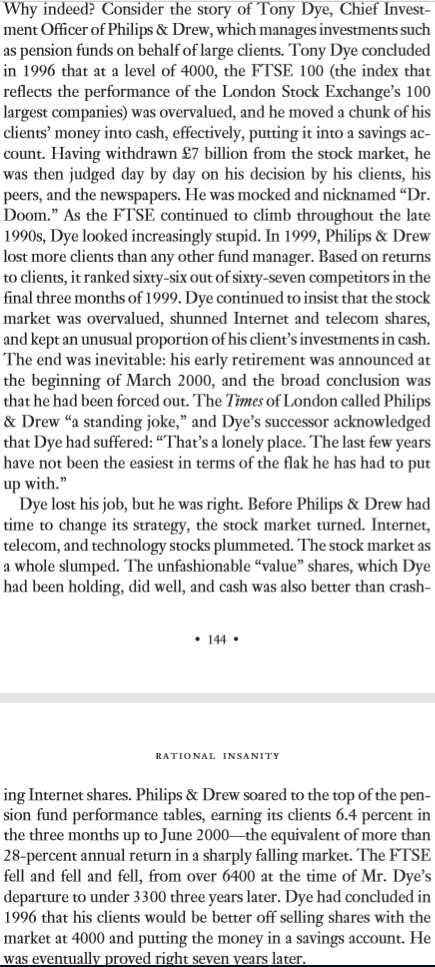In Thinking in Bets: Making Smarter Decisions When You Don’t Have All the Facts (Amazon,) Annie Duke uses probability theory to illustrate how one should go about making decisions.
Notable excerpt:
We can’t just “absorb” experiences and expect to learn. As novelist and philosopher Aldous Huxley recognized, “Experience is not what happens to a man; it is what a man does with what happens to him.” There is a big difference between getting experience and becoming an expert. That difference lies in the ability to identify when the outcomes of our decisions have something to teach us and what that lesson might be.
The point made above cannot be stressed enough for investors. Just because some “guru” or “adviser” has been at his job for a long time, it doesn’t necessarily follow that he is an expert. Expertise comes from applying a scientific mindset to decisions. Very few actually do it in practice and most are happy to be in their own comfortable filter bubble.
You can read the notes that I took here.
Recommendation: if you have read similar books in the past, you can skip this one. No new paths blazed.
